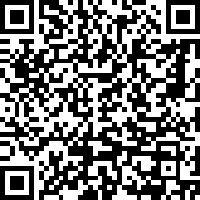Here is the letter that I sent Mr. Allan Dick regarding the portions of the article that were omitted from the published magazine article.
Email Response Below
Dear Mr. Dick,
I was pleasantly surprised to open a copy of "New Zealand Today" in a local bookstore this afternoon to find bits of my response published. On a similar note, however, I was not so pleasantly surprised to find how you had treated the article.
As one who enjoys throwing my comments to the mercy of such writers as yourself, I was not at all surprised to see many points cut out. However, I would like to use this letter to question both the integrity of your journalism, and your moral obligations as an editor.
I acknowledge the following two things: some digressions need to be cut in order to fit the given text space, and cutting the entire passage regarding the Kennedy assassination is completely acceptable as it leaves no room for misquoting. With that, I will say nothing more of cuts where only additional insight was given, and I will say nothing more of the Kennedy section (or lack there of it).
What I would like to note, however, is that you cut a variety of significant passages in the middle of my text that would have given highly credible support to my overall argument.
The first such edit appears on page 10 of the magazine at the end of the second to last paragraph. My final statement, "Not only that but specifically if people want to fix the aforementioned problems, they will need to expect an increase in petrol tax." was cut. This line states that I am NOT advocating what I had just written, but rather was used to imply an obvious fundamental flaw within your original article. Again, raising petrol prices hurts the less fortunate - that is a fact. Driving smaller cars and ultimately consuming less petrol hurts the government's profits - that is a fact.
The next cut specifically leads me to question your journalistic integrity. From the original text I sent you, you cut the next three paragraphs that would have followed the above sentence. To be honest, the third such paragraph is merely my opinion to you on politicians and thus I understand its lack of necessity. The first two, however, are necessary to the argument at hand.
Quite clearly, what you wrote in the original text (with respect to this section) is entirely wrong. I believe I need not point that out to you, but I find it strikingly unfair that a journalist with any degree of integrity could find it fit to omit such a retort. Whether or not you like how capitalism works is irrelevant to how you should choose to include facts. With regards to the Challenge vs. BP, you could not have given a better example than you did to depict how capitalism is / was intended to work for everyone, not just the rich, and certainly not just Americans. Why then would you omit these passages?
It also clearly shows that the writer (in this case me) is not an uneducated, ignorant, and greed-driven American, but rather one who is economically aware of the reality in which we live and would like to see EVERYONE better themselves - not just the already wealthy.
Again, I take no personal grief in seeing my passages omitted, but I feel you have done your readers a grave injustice. There are people in your country (and mine alike) who are unaware of how the simplicities of a competitive market can benefit them. Still, such benefits are not without a cost. People need to be aware that if they are to inherit such benefits, they must do their part to make things happen. The example of people switching petrol brands to save mere cents is a cost people must choose to pay, a very small cost at that.
Now, you may immediately want to respond to the above claiming there was a lack of space. To save you the time, I do not believe so. The response printed after mine, 'Taranaki Land Confiscations', is two and a quarter columns long. My comments, including the paragraph you responded with, are still only one and one half columns long. This would normally bring us to the obvious notion that you felt more text from the latter response was important, but again, I beg to differ. It logically seems to me, given that I 'won' the contest for submitting the best piece, that the best piece would have priority over the others. Perhaps I am confusing my logic with another god-given rights of Americans to always be heard.
Clearly sir, you did not like having obvious facts and figures pointed out to you. Seeing as how you are the editor, fair enough, but again I am not so much complaining as merely pointing out the lack of honesty and integrity you have distilled upon your readers. I noticed you cut a single word out, 'three', when I made reference to your cars. Three being how many you own. Good move, as it no doubt takes away from your ability to connect with the more common New Zealander trying to afford just one. Your agendas are hidden about as well as a giraffe in downtown Japan. I hope you take no insult to that, but rather realize that if I can figure it out, who else might?
The irony of the situation is that while you made postscript comments antagonizing Americans, you yourself are guilty of two things people around the world despise about America - myself included.
The first is the lack of honesty and integrity coming from our media on a daily basis. No doubt this happens, but is it your goal to fight fire with fire, especially when at least one American has written you a very factual and non-biased rebuttal?
The second is always feeling homage should be paid to the corporation. In this case, you have even dishonestly represented me in paying such homage. The opening line of my text: "While taking a rather enjoyable and short Origin Pacific flight from Christchurch to Dunedin...". As you know, I did NOT make any note of Origin Pacific in my letter to you. Given that you did not inquire towards my travel arrangements, had it occurred to you that charter flights between Christchurch and Dunedin also exist? In many cases they are even at a less expensive rate. Had it occurred to you that as an educated traveler I might have looked into such arrangements?
Perhaps it did and perhaps it did not; the simple fact remains that you plugged a giant corporation in an editorial of all places, and for what reason?
Finally, as I said I would like to question your moral obligations as an editor, I see two flaws.
The first is again in regards to your postscript comments. If your intention was to bring your own agenda into spectrum, I suppose there is not much I can do from my laptop to stop that. All the same, if you are going to criticize my words in print, at least have the courage to include what I actually said. Do not omit the facts surrounding the included paragraphs, and then choose to represent yourself.
The second is with regards to my contact information being published. It is true that I included such information to you, but intended for YOU to contact me. I have to question your intentions upon including it at the end of the editorial. Published is a full name, address, city, state, zip code, and email address?
As an EDITOR of a popular magazine, you know fully well that publishing ones personal contact information is a breech of confidentiality. I did not ask to remain anonymous, but misrepresenting my words and then allowing readers to personally attack those words is highly immoral, and I will quickly be looking into the legalities of it as well.
I hope that in the future you will take better note of many of the issues I have just written to you.
On a more personal note, America has its problems, but so does New Zealand or any other country around the world. Your false editing, while I cannot prove it, seems to be nothing more than an attack against Americans in general. This is more apparent given your postscript comments. Perhaps if you (and other like you) would stop merely hearing what many of our countrymen and women actually represent, and rather start listening, you might find you are pleasantly surprised.
Thank you very much for your time and good luck with your future editorials.
I have sent a copy of this letter to each person in your department specifically to remind them that personal contact information is NOT to be printed within a national magazine editorial.
Kevin Ludlow
|
|
|

